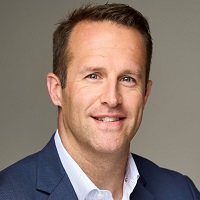Your Retirement Readiness Rx: Plan Early and Get Help
Survey shows that people who start saving earlier and also seek professional advice online and/or in person feel more confident about their retirement planning.


Profit and prosper with the best of Kiplinger's advice on investing, taxes, retirement, personal finance and much more. Delivered daily. Enter your email in the box and click Sign Me Up.
You are now subscribed
Your newsletter sign-up was successful
Want to add more newsletters?

Delivered daily
Kiplinger Today
Profit and prosper with the best of Kiplinger's advice on investing, taxes, retirement, personal finance and much more delivered daily. Smart money moves start here.

Sent five days a week
Kiplinger A Step Ahead
Get practical help to make better financial decisions in your everyday life, from spending to savings on top deals.

Delivered daily
Kiplinger Closing Bell
Get today's biggest financial and investing headlines delivered to your inbox every day the U.S. stock market is open.

Sent twice a week
Kiplinger Adviser Intel
Financial pros across the country share best practices and fresh tactics to preserve and grow your wealth.

Delivered weekly
Kiplinger Tax Tips
Trim your federal and state tax bills with practical tax-planning and tax-cutting strategies.

Sent twice a week
Kiplinger Retirement Tips
Your twice-a-week guide to planning and enjoying a financially secure and richly rewarding retirement

Sent bimonthly.
Kiplinger Adviser Angle
Insights for advisers, wealth managers and other financial professionals.

Sent twice a week
Kiplinger Investing Weekly
Your twice-a-week roundup of promising stocks, funds, companies and industries you should consider, ones you should avoid, and why.

Sent weekly for six weeks
Kiplinger Invest for Retirement
Your step-by-step six-part series on how to invest for retirement, from devising a successful strategy to exactly which investments to choose.
Do you feel you’re behind in achieving your financial goals?
You’re not alone. In a recent Prudential survey, nearly three of every four respondents said they felt that way, with overall savings levels and retirement savings the two biggest concerns.
It’s not surprising that those who started planning for retirement at younger ages generally feel more confident. In addition, the survey suggests people who’ve received any type of professional financial advice feel better about their outlook for retirement.
From just $107.88 $24.99 for Kiplinger Personal Finance
Become a smarter, better informed investor. Subscribe from just $107.88 $24.99, plus get up to 4 Special Issues

Sign up for Kiplinger’s Free Newsletters
Profit and prosper with the best of expert advice on investing, taxes, retirement, personal finance and more - straight to your e-mail.
Profit and prosper with the best of expert advice - straight to your e-mail.
In other words, what appears to matter most is getting some form of professional financial help — whether that’s an automated online tool, in person, hybrid or something else — and to start saving as early as possible. Those two factors are key to getting on track for retirement success.
A closer look at the numbers
To better understand American perceptions of retirement and savings, Prudential contracted with OnePoll for an online survey consisting of 2,000 respondents. The survey was conducted from March 23-28 with a broad representation of generational groups (e.g., the respondents were evenly split by generation, so 500 each from Generation Z, Millennials, Generation X and Baby Boomers).
The survey focused on a variety of issues, and we were specifically interested in how the age a respondent starts preparing for retirement, in conjunction with using a financial professional, relates to overall retirement readiness.
We found that respondents who started planning at earlier ages are in better shape than those who start later in life, which is not surprising. For example, 58% of respondents who start thinking seriously or planning for retirement between the ages of 31 and 40 would describe themselves as somewhat or very prepared for retirement, compared to just 48% of respondents who started thinking seriously or planning for retirement between the ages of 51 and 60.
The differences in retirement readiness for those engaging with a financial professional, even among those who start planning at an early age, were more startling. Among respondents who reported using a financial professional and who started saving between the ages of 31 and 40, 78% said they are somewhat or very prepared for retirement — vs. just 44% for those who had started saving at the same age, but who had never spoken to a financial adviser.
What’s also interesting is that while only around 69% of all respondents said they were somewhat or very prepared for retirement, there is little difference in the noted level of preparation across the different advice options, whether it be in person, online or even through an employer-sponsored defined contribution plan (e.g., a 401(k) or 403(b)).
In other words, the key to preparing for retirement is getting financial help — not the specific type of help. While there are likely nuanced differences within certain groups (e.g., responses to other questions suggest the comfort of working with different types of financial advice solutions varies by demographic factors such as age and income), overall results suggest working with a financial advice solution (as early as possible) is more important than using a specific type (e.g., the notion that everyone must work with an in-person financial adviser).
Your key takeaways
Households typically have myriad competing financial priorities and an even greater number of products and solutions available to fund their respective goals. This complexity can often lead to choice overload and indecision. Prudential’s survey suggests that preparing for financial goals at younger ages, and in particular getting professional financial advice, is a key to significantly improving household financial health, such as retirement readiness.
The specific type of financial advice doesn’t appear to be materially related to confidence levels. This finding is potentially especially important for younger investors who may not have the assets, resources or interest to engage in person with a financial adviser and could potentially start by using some type of online (i.e., a robo adviser) or largely virtual financial advice solution.
At some point, it may be worth engaging with an adviser (or more robust toolset) as the situation evolves, but getting some form of professional guidance early is the most important factor in feeling confident about your journey to a fulfilling retirement.
The Prudential Insurance Company of America, Newark, NJ. 1071641-00001-00
PGIM DC Solutions is an SEC-registered investment adviser, a Delaware limited liability company and is a direct wholly owned subsidiary of PGIM Quantitative Solutions LLC, and an indirect wholly-owned subsidiary of PGIM, Inc., the principal asset management business of Prudential Financial, Inc. of the United States of America. PFI of the United States is not affiliated in any manner with Prudential plc incorporated in the United Kingdom or with Prudential Assurance Company, a subsidiary of M&G plc, incorporated in the United Kingdom. Registration with the SEC does not imply a certain level of skill or training.
These materials are for informational, illustrative and educational purposes only. This document may contain confidential information and the recipient hereof agrees to maintain the confidentiality of such information. Distribution of this information to any person other than the person to whom it was originally delivered is unauthorized, and any reproduction of these materials, in whole or in part, or the divulgence of any of its contents, is prohibited. The information presented herein was obtained from sources that PGIM DC Solutions believes to be reliable as of the date presented; however, PGIM DC Solutions cannot guarantee the accuracy of such information, assure its completeness, or warrant such information will not be changed. The information contained herein is current as of the date of issuance (or such earlier date as referenced herein) and is subject to change without notice.
These materials do not provide any legal, tax or accounting advice. These materials are not intended for distribution in any jurisdiction where such distribution would be unlawful. Certain information contained herein may constitute "forward-looking statements," (including observations about markets and industry and regulatory trends as of the original date of this document). Due to various risks and uncertainties, actual events or results may differ materially from those reflected or contemplated in such forward-looking statements. As a result, you should not rely on such forward-looking statements in making any decisions.
Profit and prosper with the best of Kiplinger's advice on investing, taxes, retirement, personal finance and much more. Delivered daily. Enter your email in the box and click Sign Me Up.

David Blanchett, PhD, CFA, CFP®, is Managing Director and Head of Retirement Research for PGIM DC Solutions. PGIM is the global investment management business of Prudential Financial, Inc. In this role he develops research and innovative solutions to help improve retirement outcomes for investors with a focus on defined contribution plans. Prior to joining PGIM he was the Head of Retirement Research for Morningstar Investment Management. He is currently an Adjunct Professor of Wealth Management at The American College of Financial Services and Research Fellow for the Alliance for Lifetime Income. David has published over 100 papers in a variety of industry and academic journals that have received awards from the CFP Board, the Financial Analysts Journal, the Journal of Financial Planning, and the International Centre for Pension Management. In 2014 InvestmentNews included him in their inaugural 40 under 40 list as a “visionary” for the financial planning industry, and in 2021 ThinkAdvisor included him in the IA25+. When David isn’t working, he’s probably out for a jog, playing with his four kids, or rooting for the Kentucky Wildcats.
-
 Nasdaq Leads a Rocky Risk-On Rally: Stock Market Today
Nasdaq Leads a Rocky Risk-On Rally: Stock Market TodayAnother worrying bout of late-session weakness couldn't take down the main equity indexes on Wednesday.
-
 Quiz: Do You Know How to Avoid the "Medigap Trap?"
Quiz: Do You Know How to Avoid the "Medigap Trap?"Quiz Test your basic knowledge of the "Medigap Trap" in our quick quiz.
-
 5 Top Tax-Efficient Mutual Funds for Smarter Investing
5 Top Tax-Efficient Mutual Funds for Smarter InvestingMutual funds are many things, but "tax-friendly" usually isn't one of them. These are the exceptions.
-
 Social Security Break-Even Math Is Helpful, But Don't Let It Dictate When You'll File
Social Security Break-Even Math Is Helpful, But Don't Let It Dictate When You'll FileYour Social Security break-even age tells you how long you'd need to live for delaying to pay off, but shouldn't be the sole basis for deciding when to claim.
-
 I'm an Opportunity Zone Pro: This Is How to Deliver Roth-Like Tax-Free Growth (Without Contribution Limits)
I'm an Opportunity Zone Pro: This Is How to Deliver Roth-Like Tax-Free Growth (Without Contribution Limits)Investors who combine Roth IRAs, the gold standard of tax-free savings, with qualified opportunity funds could enjoy decades of tax-free growth.
-
 One of the Most Powerful Wealth-Building Moves a Woman Can Make: A Midcareer Pivot
One of the Most Powerful Wealth-Building Moves a Woman Can Make: A Midcareer PivotIf it feels like you can't sustain what you're doing for the next 20 years, it's time for an honest look at what's draining you and what energizes you.
-
 I'm a Wealth Adviser Obsessed With Mahjong: Here Are 8 Ways It Can Teach Us How to Manage Our Money
I'm a Wealth Adviser Obsessed With Mahjong: Here Are 8 Ways It Can Teach Us How to Manage Our MoneyThis increasingly popular Chinese game can teach us not only how to help manage our money but also how important it is to connect with other people.
-
 Looking for a Financial Book That Won't Put Your Young Adult to Sleep? This One Makes 'Cents'
Looking for a Financial Book That Won't Put Your Young Adult to Sleep? This One Makes 'Cents'"Wealth Your Way" by Cosmo DeStefano offers a highly accessible guide for young adults and their parents on building wealth through simple, consistent habits.
-
 Global Uncertainty Has Investors Running Scared: This Is How Advisers Can Reassure Them
Global Uncertainty Has Investors Running Scared: This Is How Advisers Can Reassure ThemHow can advisers reassure clients nervous about their plans in an increasingly complex and rapidly changing world? This conversational framework provides the key.
-
 I'm a Real Estate Investing Pro: This Is How to Use 1031 Exchanges to Scale Up Your Real Estate Empire
I'm a Real Estate Investing Pro: This Is How to Use 1031 Exchanges to Scale Up Your Real Estate EmpireSmall rental properties can be excellent investments, but you can use 1031 exchanges to transition to commercial real estate for bigger wealth-building.
-
 Should You Jump on the Roth Conversion Bandwagon? A Financial Adviser Weighs In
Should You Jump on the Roth Conversion Bandwagon? A Financial Adviser Weighs InRoth conversions are all the rage, but what works well for one household can cause financial strain for another. This is what you should consider before moving ahead.